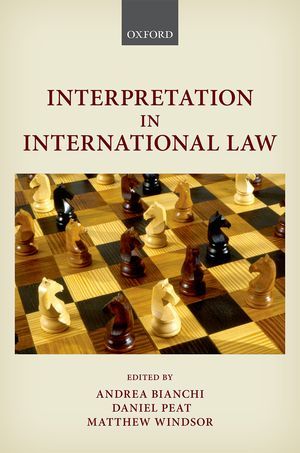
The relevance of interpretation to the academic study and professional practice of international law is self-evident. As new insights on the practice and process of interpretation abound in other disciplines, international law and international lawyers have largely remained wedded to a rule-based approach, focusing almost exclusively on the Vienna Convention on the Law of Treaties. Such an approach neglects interpretation as a distinct and admittedly broader field of theoretical inquiry.
Interpretation in International Law brings together established and emerging international legal scholars to interrogate interpretation as a central concept in international law. The edited collection is creatively structured around the metaphor of the game, which captures and illuminates all the constituent elements of an act of interpretation.
The object of the game of interpretation is to persuade one's audience that your own interpretation of the law is the correct one. The rules of play are known and complied with by the players, even though which cards to play is left to the skills and strategies of the individual players. There is also a meta-discourse about the game of interpretation 'playing the game of game-playing' which involves reflection about the nature of the game, its underlying stakes, and who gets to decide by what rules one should play.
Through a series of diverse contributions, Interpretation in International Law reveals interpretation as an inescapable feature of all areas of international law. It will be of interest and utility to all international lawyers whose work touches upon theoretical or practical aspects of interpretation.